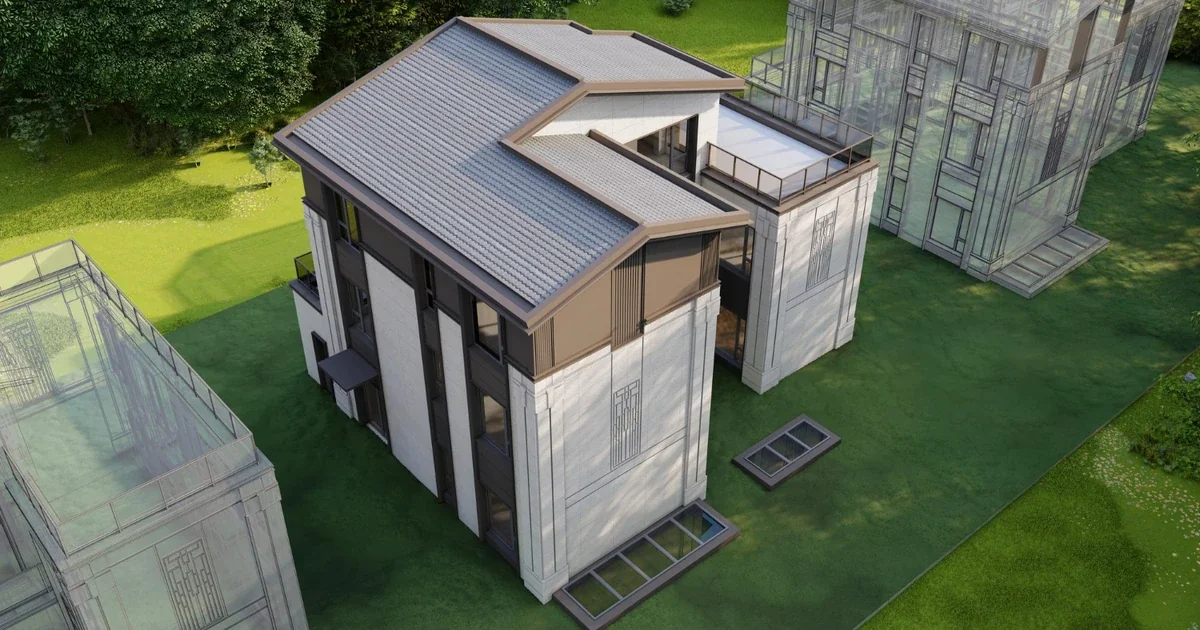Types of Tapu in Turkey: Red, Blue and Shared Deeds and Their Importance for Foreign Investors
June 26, 2025
Before purchasing property in Turkey, it is essential for a foreign investor to understand what a real-estate title deed—known as a tapu—is, as well as the different types of tapu available. This official document is the legal cornerstone that proves ownership of any property and constitutes an important element in safeguarding your rights and investment over the long term. In this guide from Skyline Holding, we review the types and colors of title deeds in Turkey (red and blue tapu), including agricultural, investment, and commercial deeds. We explain the legal differences between them and how the kind of deed you hold can affect a foreign investor’s rights.
What Is a Real-Estate Title Deed (Tapu) in Turkey?
A real-estate title deed in Turkey, commonly referred to as a tapu, is an official document issued by the Turkish Land Registry Directorate that legally proves property ownership. The deed contains all detailed information about the property and its owner, including the owner’s name and photograph, the property type (residential, commercial, land, etc.), its location and size, and cadastral numbers, along with other precisely archived information. The tapu serves as the property’s official ID card, granting the owner full authority to dispose of the property—through sale, lease, investment, mortgage, and other legal actions.
Holding a tapu is indispensable for proving ownership; no one can legally claim a property without having this deed in their name. A title deed is issued exclusively in the registered owner’s name, and multiple copies for the same property are not granted to different people—rather, each owner’s share is specified in the deed when ownership is shared. Foreigners are entitled to own property in Turkey and obtain tapu deeds just like Turkish citizens, subject to general restrictions such as bans on ownership in military zones or exceeding a certain land area nationwide. A foreign investor’s title deed carries the same legal weight as a citizen’s, ensuring full ownership, disposal, and inheritance rights under Turkish law. Moreover, Turkish legislation allows a foreigner who purchases property worth USD 400,000 or more to apply for Turkish citizenship, and enables the owner and their family to obtain a renewable residence permit as long as the property remains in their name.
The Difference Between the Red and Blue Tapu
In Turkey, title deeds come in different colors to indicate the nature of the registered property. The red and blue tapu are the two most common, and their color depends on the property’s type and function. What distinguishes them?
Red Tapu: This color is issued for real estate intended for residential or commercial use, such as apartments, houses, villas, shops, and similar properties. The document includes detailed information about the specific unit (e.g., apartment or office) and its share of the plot on which the building sits. An owner receives a red tapu when acquiring a property suitable for independent use—that is, the property is built and ready for occupancy. This includes apartments in residential buildings, standalone houses, villas, and commercial premises or offices within commercial structures. Holding a red tapu means you are the legal owner of a fully demarcated unit with all its facilities, and the building has typically obtained the final occupancy permit confirming the structure is complete and authorized for use. It grants all standard rights such as residing, leasing, and freely disposing of the property.
Blue Tapu: Also known as the agricultural deed, it is issued for fields and agricultural land or plots designated for construction under zoning plans. It is blue to distinguish it from the red tapu used for built-up properties. A blue deed is granted for undeveloped plots, and it falls into two main categories: buildable land and purely agricultural (field) land. In the first case, the land may be classified within urban zoning as suitable for construction (called Arsa in Turkish), allowing the owner to erect a building after obtaining the necessary permits. Purely agricultural or field land (Tarla in Turkish) is dedicated to farming, livestock, and similar rural activities, and construction is generally restricted to a very small percentage of the area—typically 5 %–20 % depending on local regulations. In general, a blue tapu represents land ownership—whether zoned for construction or earmarked for agriculture—and its color differentiates it from the red deed for built properties.
A key difference between the red and blue deeds lies in their content. While the red deed details the residential or commercial unit—such as the apartment or office number within the building and its land share—the blue deed focuses on the plot: its parcel number, location, area, and agricultural or investment nature, with no details about an existing structure (because none yet exists). Another difference is that, although both are issued by the same Land Registry Directorate, the legal procedures vary: a built property requires an occupancy permit and a completion certificate before a red deed is issued, whereas agricultural land needs municipal confirmation that it is classed as farmland (or has building permission if zoned land). Foreign investors must pay close attention to the deed color they receive, as it directly indicates the property’s legal classification and use.
Agricultural vs. Investment Tapu: Legal Differences
Investors may sometimes hear the term “investment tapu,” especially when discussing land designated for development projects. What exactly is an investment deed, and how does it differ from a traditional agricultural deed? Here we outline the legal aspects and key differences.
Agricultural Tapu (Field Land – Blue): As noted, this deed represents agricultural land located outside urban zoning plans, meaning it is not legally ready for large-scale construction. The law allows owners to use such land solely for agricultural investment—crop cultivation, livestock, poultry, greenhouses, fish farms, and other rural activities. Building is possible but severely limited, such as constructing a small farmhouse or storage facility to serve agricultural use, with a low building ratio (usually 5 %–20 % of total land area). Investors buying agricultural land must realize they lack full freedom to convert it into a residential or commercial project unless its legal status changes later.
Investment Tapu (Buildable Land – Initially Blue or Temporarily Red): This term refers to a title deed for land that is zoned for construction and real-estate development within an urban planning scheme. Such land is often registered as buildable (Arsa) and carries a blue deed in the pre-construction stage. It enables the owner to develop residential or commercial projects after obtaining engineering approvals and municipal consent.
Legally, the primary difference between investment and agricultural land is its classification in state records. If the land falls within a development plan—located in a municipality-serviced area where development is allowed—its deed is considered an “investment tapu” because it is intended for construction. Once the investor completes the project and secures an occupancy permit, the deed color ultimately changes from blue to red when the building is subdivided into independent units, and each section receives a full ownership deed (red tapu).
It is worth noting that a plot may be recorded as agricultural (blue) yet realistically lie within an area slated for future urban expansion. When cities grow and zoning plans are revised, some farmland becomes eligible for building permits, potentially boosting its value significantly. However, investors should not rely solely on speculation; it is wiser to consult an engineer or real-estate advisor to confirm any land’s legal status before purchase and to check with the relevant municipality about the current classification and any planned changes.
Commercial Tapu: Requirements and Challenges
Alongside residential (red) and agricultural deeds, there is also what can be called a commercial deed, which concerns properties used purely for business—such as offices, stores, warehouses, and commercial complexes or malls. What are the legal specifics of this type of deed, and what challenges might a foreign investor face when owning commercial property in Turkey?
Technically, there is no separate color for a commercial deed; a completed commercial property with an occupancy permit will also be issued a red tapu. The property type is merely specified in the usage field—for example, “commercial unit” or “office” instead of “residential apartment.” If the investor is purchasing land to build a commercial project, such as a mall or office building, the initial deed will be blue because the land is undeveloped, turning red after construction and subdivision. The difference, therefore, lies not in color but in the property’s nature and related regulations.
Special requirements for commercial property: A foreign investor planning to buy commercial real estate should heed several considerations before and after obtaining the title deed:
- First, operating licenses: Certain properties require specific operating permits—for instance, if the property will serve as a workshop, restaurant, or corporate office, approvals may be needed from the municipality or the chamber of commerce, depending on the activity.
- Second, taxes and fees: Owning a commercial property may entail higher taxes than a residential one. For example, the annual property-tax rate can be higher for commercial assets in some municipalities. Utility charges such as water and electricity are billed at commercial tariffs when the property is used for business. These costs should be factored into any feasibility study.
The Difference Between an Ordinary Deed and a Shared-Ownership Deed
Ordinary deed or full-ownership deed: This grants complete ownership to the holder of an individual unit and is typically issued for units after construction is finished. It includes all the details found in a red residential deed, such as property number, floor number, room count, apartment number, owner’s name, and the unit’s land share.
Shared-ownership deed: A modern investment procedure in Turkey’s real-estate market, this deed proves that several people share ownership of a property, each receiving a copy of the deed showing their share. The shares represent percentages of the entire property, not designated physical parts; each partner co-owns the whole property according to their specified share.
How Does the Type of Tapu Affect Foreign Investors’ Rights?
The kind of title deed an investor holds is more than a formal classification; it can directly influence the owner’s rights and permitted uses. Below are some ways deed type impacts the rights and obligations of a foreign investor:
- Residential use: A red (residential) deed entitles the owner to live in the property immediately or rent it out as a dwelling. A blue agricultural deed does not allow the owner to build a standard residence, so one cannot live permanently on the land unless granted a special permit, such as to build a small farmhouse.
- Residence permit: A red deed for a completed property makes it easier to obtain a real-estate residence permit, whereas empty land (blue deed) may be unsuitable for this purpose without actual construction.
- Transfer and added value: A red deed allows immediate sale and boosts market appeal, while holders of investment or shared deeds must finish construction before officially selling their shares.
- Inheritance and mortgage: All deed types are legally inheritable and mortgageable, but shared-ownership deeds require project completion first.
Investor Tip: Which Type of Tapu Fits Your Goals?
Given the variety of title-deed options in Turkey, foreign investors may ask: Which type is best for me? The answer depends on your personal and investment objectives. Here are quick tips linking goals to suitable deeds:
- If your goal is personal housing or residence, the red residential deed is best. It ensures you acquire a move-in-ready home and can easily secure a real-estate residence permit.
- If your aim is obtaining Turkish citizenship, you must invest in property worth at least USD 400,000. The deed type is not strictly limited—you may buy residential, commercial, or even land—but purchasing completed property with a red deed can speed up valuation, transfer, and citizenship procedures.
- For quick-return investment, new apartments sold with a shared deed in reputable off-plan projects are a good option. You can also invest in buildable land (blue deed) but ensure it is in an area where construction is allowed. Do not gamble on very cheap agricultural land hoping it will later convert to buildable status unless you have municipal confirmation or a long-term plan.
- If you seek stable rental income, a red deed for a ready commercial property in a prime location can be suitable. Ensure the expected yield meets your projections and remember to account for taxes and expenses.
- If your goal is a farm or agricultural land, then the blue agricultural deed is appropriate. Choose land with adequate size, fertile soil, and a location that suits your intended crops or livestock.
Read also: Holiday-Villa Trends and Real Estate on the Turkish Coast
Skyline Holding’s Services for Title-Deed Documentation
Skyline Holding offers comprehensive services to foreign investors regarding title-deed documentation:
- Legal verification that the deed is free of mortgages or liens before purchase.
- Accompanying a sworn translator to the Land Registry for ownership transfer.
- Preparing documents such as tax number, valuation report, earthquake insurance, and more.
- Completing the transaction and following up on obtaining the red or blue deed.
- After-sales services: utility registration, rental management, or resale.
Read also:
Keywords
What is your budget?
Recommended Articles

December 15, 2025
How to Choose the Right Property in the UAE? 2026 Investor Guide
How to choose the right property in the UAE for 2026. A comprehensive guide covering best areas, ROI calculation, and off-plan buying risks.

November 13, 2025
Turkey’s 2025 Economic Program: How Will It Affect Inflation, the Lira, and the Real Estate Market?
The new Turkish economic program: what it means for investors and how it will impact inflation, the lira, and real-estate investment opportunities in Turkey.

July 8, 2025
Modular vs. Traditional Construction: Speed, Cost, and Durability
A comparison of modular and traditional construction in terms of execution speed, project costs, and durability—essential insights for real‑estate investors.
